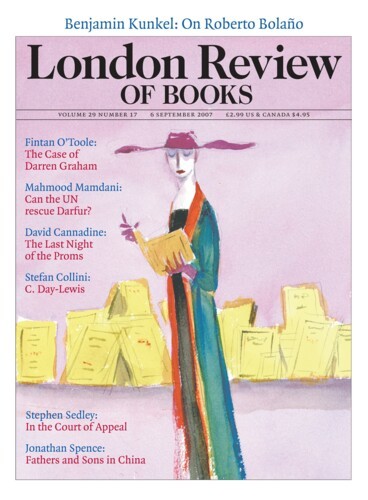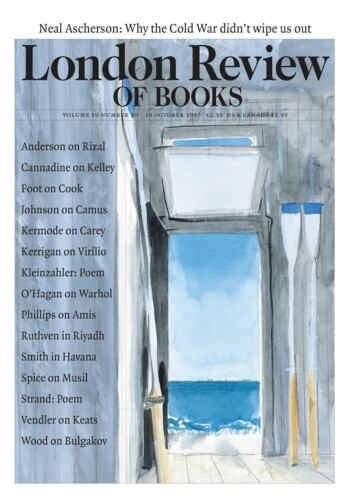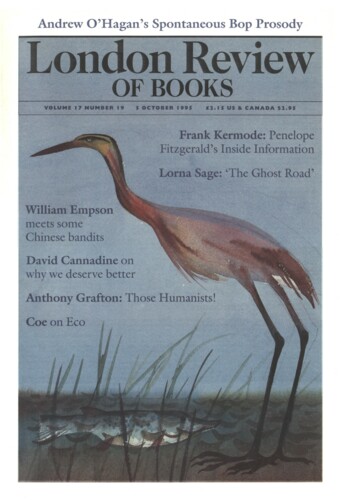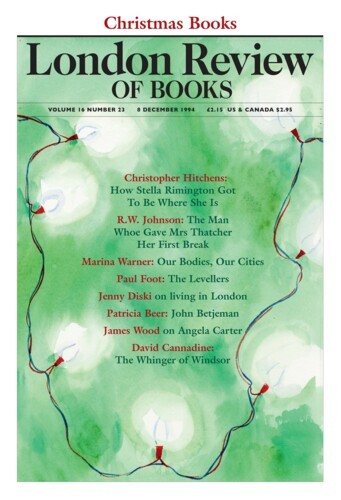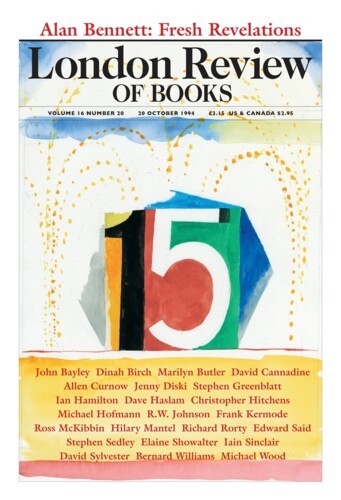Last Night Fever: The Proms
David Cannadine, 6 September 2007
Like many ostensibly ancient British rituals, the Promenade Concerts were founded towards the close of the 19th century, shortly after the Queen’s Hall opened as a new musical venue in 1893. As such, they may be regarded as a classic instance of what is sometimes called ‘invented tradition’, where venerable antiquity is less in evidence than is often popularly supposed; and...
